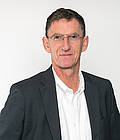
PHONE: + 49 3628 66048-2900

Our good advice for your thermal and noise insulation.
DIN thermal insulation certification in accordance with the German energy savings regulation (EnEV) ensures that energy will be used efficiently in the building and is required for building approval to be granted. According to the Thermal Insulation Regulation, proof of thermal insulation must be submitted together with the building application and the other technical certification to the approvals authority before construction begins. HI Bauprojekt supports you in all matters relating to thermal insulation certification:
- Creating and checking thermal insulation certificates
- Creating energy performance certificates (of residential and non-residential buildings)
- Proof of energy savings
- Proposals for energy savings while maintaining economic viability
HI Bauprojekt GmbH creates concepts and approaches to solutions for sound insulation, including the necessary calculations and expert assessments.
Buildings must have sound insulation to a level that corresponds to its purpose (§18.2 German model building regulations (MBO)). The requirements of the associated DIN should ensure that people occupying dwelling or work spaces within buildings are protected from “unacceptable nuisance” caused by the transmission of sound. Where the DIN requirements are observed, interference from noise from neighbouring dwellings and from technical installations in the building cannot be ruled out. Effective sound insulation can be achieved with the aid of VDI 4100 “Sound insulation in homes”.
EPC Exclusives
Complex planning for technical building services
HI Bauprojekt GmbH has the specialists to plan optimal solutions tailored to meet the needs of the customer. Planning to comply with the latest directives, for example the energy saving and drinking water regulations is our everyday business. We can also apply our know-how to optimize existing systems and so achieve cost benefits for our customers. The planning of energy generation plants has to pay attention to optimizing the layout. The exploitation of waste heat is playing an ever more important role. We can plan all the ancillary plants for industrial projects according to the requirement profile and the production requirements, and we also take availability and security of supply into account.
Clean room planning / buildings with high requirements
The technical engineering involved in planning and constructing clean rooms places the highest demands on the air-conditioning and filtering systems. It is vitally important to minimise the particle load and maximize the chemical purity.
EPC plans all the production processes in a clean room layout with the aid of a list of mechanical equipment, so it can then design a ventilation system for the rooms that meets the high requirements of the ISO or GMP clean room classes. Before the clean rooms are commissioned, EPC qualifies the clean rooms and ventilation systems according to the relevant national guidelines.
Services for testing bridges and engineering structures according to DIN 1076
We know the loads that such structures are subject to. It is essential to test bridges and engineering structures regularly according to DIN 1076 in order to ensure that these structures remain safe and fit for use over the long term. This is everyday business for our experienced engineers. They carry out tests, and write test reports and structure log books. New knowledge is compared with existing data, and reliably documented in the "SIB-Bauwerke" program. The range of services covers not only the testing of individual structures, but also long-term inspection and testing at the intervals specified by DIN 1076. The bridges and engineering structures we have tested during the last 15 years are a testament to the acknowledged, consistently high quality of our work.
Planning outdoor swimming baths
The planning of outdoor swimming baths pays particular attention to exploiting solar energy. For example, installing solar mats on the roofs of the changing rooms and technical equipment buildings generates hot water for the sanitary facilities, without requiring additional heating. Larger roof areas can generate enough hot water to heat the water in a pool, for example the children's pool.







